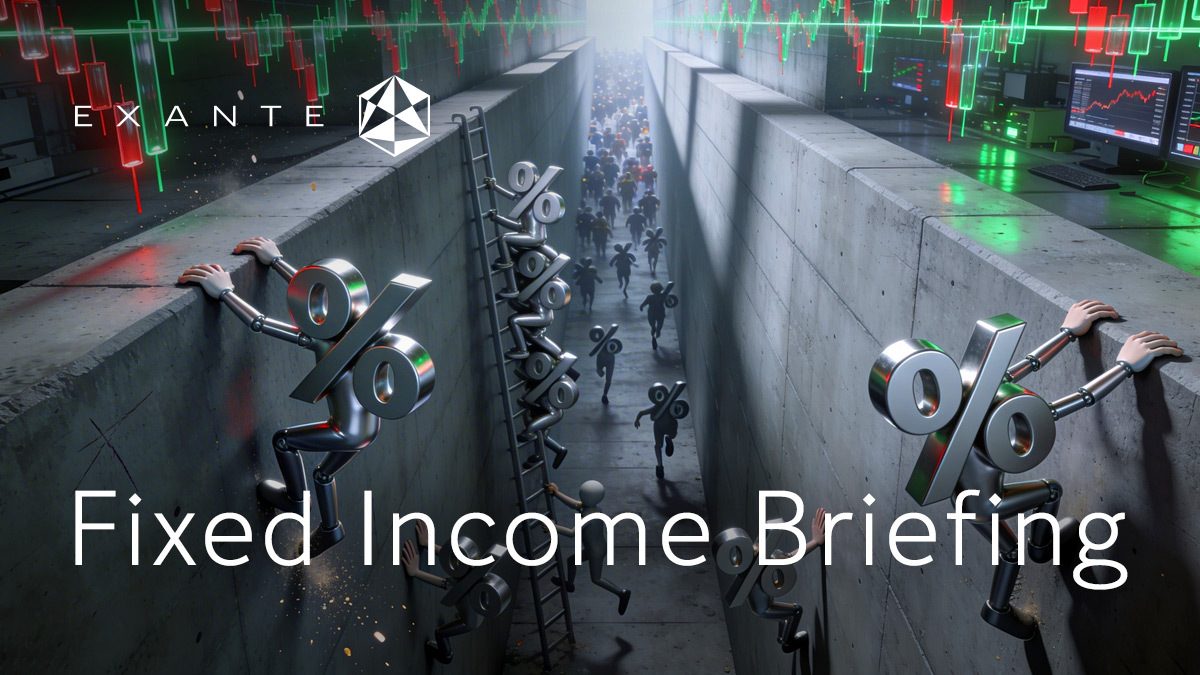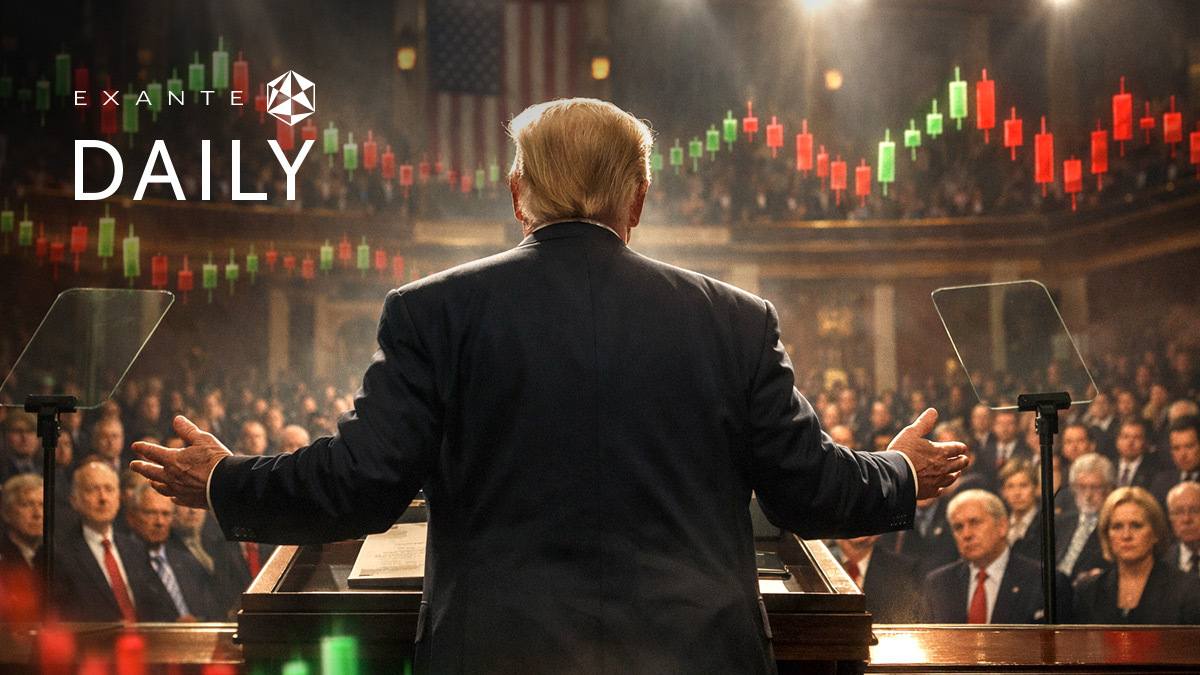
EXANTE Macro Insights

Por Renée Friedman, PhD
La semana en resumen:
Bienvenidos a Macro Insights #14. Esta semana se ha producido un aumento del rendimiento de los mercados en medio de las crecientes preocupaciones en torno a la inflación y el creciente riesgo político, sin embargo, los mercados no han salido indemnes. Las acciones de las empresas tecnológicas han sido las más afectadas por los temores de los traders del mercado sobre cómo el endurecimiento de la política monetaria podría afectar a las valoraciones. Esto se ha visto agravado esta semana tras el decepcionante informe trimestral del propietario de Facebook, Meta, publicado el miércoles, que hizo que sus acciones se desplomaran un 22% en las primeras operaciones del jueves en EE. UU., debido a los malos resultados de las ganancias, lo que puso a la empresa en camino de perder unos 195.000 millones de dólares.
Para sorpresa de todos, el jueves el Banco de Inglaterra subió el tipo de interés bancario en un 0,25% hasta el 0,5%. El comité de política monetaria del banco (MPC, por sus siglas en inglés) votó por una mayoría de 5 a 4 para aumentar el tipo de interés bancario. La inflación ascendió al 5,4% en diciembre y se prevé que alcance el 7,25% en el mes de abril. En una señal muy interesante de lo mucho que preocupa al banco la inflación, esos cuatro miembros del CPM desean aumentar el tipo de interés bancario en 0,5 puntos porcentuales, hasta el 0,75%. Todos los miembros del Comité de Política Monetaria están de acuerdo en que sería necesario un "modesto" endurecimiento durante los próximos meses. En una votación unánime, el MPC ha acordado que el Banco de Inglaterra debería empezar a reducir el stock de compra de bonos del Estado del Reino Unido, dejando de reinvertir los activos que vencen. Esto debería permitir que más de 200.000 millones de libras esterlinas salgan del balance para el año 2025. El Comité de Política Monetaria también ha votado de forma unánime a favor de reducir el stock de compras de bonos corporativos no financieros con grado de inversión en libras esterlinas, dejando de reinvertir los activos que vencen y mediante un programa de ventas de bonos corporativos que se completará no antes de finales de 2023. De esta forma, se descargará la totalidad de los 20.000 millones de libras de bonos corporativos. Las últimas previsiones del banco muestran que se espera que el crecimiento del PIB del Reino Unido se vea ralentizado, debido principalmente al impacto del aumento de los precios mundiales de la energía y de los bienes comercializables sobre la renta y el gasto agregados reales del Reino Unido. Como resultado, se espera que la tasa de desempleo aumente hasta el 5%.
El Banco Central Europeo (BCE) decidió el jueves no cambiar la política que acordó en diciembre, a pesar de que la inflación alcanzó el 5,1% en toda la zona euro en enero. En su declaración, la institución ha dicho que "durante el primer trimestre de 2022, el Consejo de Gobierno está llevando a cabo compras netas de activos en el marco del programa de compras de emergencia frente a la pandemia (PEPP) a un ritmo menor que en el trimestre anterior y que interrumpirá las compras netas de activos en el marco del PEPP a finales de marzo de 2022. El Consejo de Gobierno pretende reinvertir los pagos del principal de los valores adquiridos en el marco del PEPP que vayan venciendo hasta, al menos, el final de 2024". No ha habido cambios en los tipos de interés. Las declaraciones continuaron con "el Consejo de Gobierno espera que las compras netas finalicen poco antes de que empiece a subir los tipos de interés clave del BCE". El BCE ha informado de que tiene la intención de seguir reinvirtiendo los pagos del principal de los valores que vencen adquiridos en el marco del PEPP durante un período de tiempo prolongado, más allá de la fecha en que empiece a subir los tipos de interés oficiales del BCE, "durante el tiempo que sea necesario para mantener unas condiciones de liquidez favorables y un amplio grado de acomodación monetaria". El BCE únicamente ha introducido un pequeño cambio en su declaración de diciembre, ya que ha eliminado una cláusula que estipulaba que su próximo movimiento político podría ser "en cualquier dirección". Los mercados ya dudan de las proyecciones del BCE sobre la disipación de la inflación y, según las estimaciones de Refinitiv, están valorando 28 puntos básicos de subidas de tipos este año, a pesar de la insistencia del banco en que cualquier movimiento en 2022 es muy poco probable, ya que el banco central no está detectando actualmente ningún efecto secundario, como un aumento de los salarios, a pesar de que la brecha de producción se está cerrando y hay menos holgura en la economía de la eurozona en general.
El miércoles, la OPEP y sus aliados acordaron realizar otro modesto aumento de la producción en marzo con la reactivación de su anterior acuerdo de aumentar la producción en 400.000 barriles diarios. No obstante, las promesas anteriores se han quedado cortas. La OPEP+ aumentó la producción en tan solo 50.000 barriles diarios en enero, ya que los ligeros aumentos en todo el grupo se vieron anulados por un descenso de 140.000 barriles diarios en Libia. A esto hay que añadir la creciente preocupación por la guerra verbal entre Rusia y EE. UU. en torno a los problemas fronterizos entre Rusia y Ucrania, las continuas amenazas a los Emiratos Árabes Unidos por parte del grupo militante de los hutíes de Yemen, que obligaron a la fuerza aérea de los EAU a interceptar y destruir un misil balístico lanzado por los hutíes el pasado 31 de enero, la disputa en curso entre Marruecos y Argelia, y el clima gélido en EE. UU., que está impulsando la demanda de petróleo en el país, además de afectar a la oferta. Los futuros del petróleo están subiendo, situándose actualmente en torno a los 90 dólares/barril. Esto quedará reflejado en la inflación, empeorando las perspectivas de crecimiento de los países importadores de energía, lo que probablemente se verá agravado por el hecho de que los bancos centrales de esos países tengan que subir los tipos y reducir la liquidez.
El pasado lunes, el FMI advirtió de que las fuertes oscilaciones de los precios de las criptomonedas plantean "riesgos inmediatos y agudos" para los mercados emergentes. Este ha instado a los reguladores nacionales y mundiales a establecer un enfoque coordinado, coherente y exhaustivo para supervisar las criptomonedas. El FMI ha destacado los riesgos para la estabilidad debido a los crecientes indicios de un riesgo de correlación más estrecho entre el rendimiento de las criptomonedas y otros activos financieros en los mercados desarrollados. Esto también podría afectar a los mercados emergentes, ya que las carteras de los inversores se desplazan de forma repentina, afectando al valor y al precio de algunos activos de los mercados emergentes. De acuerdo con el Financial Times, los funcionarios del FMI creen que los fuertes episodios de desapalancamiento en las criptomonedas están alimentando las ventas en los mercados de valores.
Lo que hay que tener en cuenta esta semana:
- En Europa, el viernes habrá que prestar atención a los pedidos de fábrica alemanes, a los datos de nóminas no agrícolas y de producción industrial franceses, y a los datos de ventas minoristas de la zona euro. El lunes se conocerá la producción industrial alemana y el martes las ventas minoristas italianas. El miércoles se publicará la balanza comercial alemana, que será un indicador del crecimiento de Alemania. El jueves, la Comisión Europea publicará sus previsiones de crecimiento económico.
- En Estados Unidos, el viernes se publicarán los datos de los ingresos medios por hora, la tasa de participación de la población activa, las nóminas no agrícolas, la tasa de desempleo y la tasa de subempleo. El jueves se publicarán los datos del IPC, las solicitudes iniciales de subsidio de desempleo y las solicitudes continuas de subsidio de desempleo. También se publicará la declaración presupuestaria mensual. La fecha límite para el presupuesto de 2022 es el próximo 18 de febrero y, en la actualidad, parece que los negociadores del Congreso podrían incumplir este plazo para aprobar un paquete ómnibus de las asignaciones anuales. Sigue habiendo desacuerdos sobre el plan "reconstruir mejor" del presidente Biden y, si no se acuerda un presupuesto para entonces, este podría haber perdido su oportunidad de definir las prioridades de gasto de la nación mientras los demócratas controlan ambas ramas del Congreso (actualmente se espera que los demócratas pierdan su mayoría en la Cámara de Representantes durante las elecciones de mitad de mandato en noviembre). El principal punto de fricción parece ser el aumento de la financiación de los programas sociales nacionales no relacionados con la defensa en comparación con el gasto militar.
- En el Reino Unido, el viernes se publicará el PMI de la construcción de Markit. El miércoles se publican los datos de las ventas minoristas comparables del BRC. El jueves, el Instituto Nacional de Investigación Económica (NIESR) publicará su estimación del PIB a tres meses.
El problema de la deuda y los mercados emergentes:
Un informe publicado por la Campaña de la Deuda del Jubileo (deuda de los mercados emergentes) destaca que los pagos de la deuda de los países en desarrollo aumentaron un 120% entre 2010 y 2021, y actualmente se encuentran en su nivel más alto desde 2001. La parte media de los ingresos públicos destinada a los pagos de la deuda externa aumentó del 6,8% en 2010 al 14,3% en 2021, y los pagos se dispararon en 2020.
Tal y como señaló Kristalina Georgieva, directora gerente del Fondo Monetario Internacional, durante la reunión virtual de Davos de este año, "las subidas de los tipos de interés por parte de la Reserva Federal podrían echar un jarro de agua fría a las ya débiles recuperaciones económicas de algunos países". Y esas recuperaciones podrían seguir viéndose afectadas por la persistente desigualdad en relación a la vacuna. Como señala Mohamed El-Erian (El invierno de nuestro malestar), la puerta seguirá abierta a la aparición de nuevas variantes hasta que la población mundial se haya inmunizado de forma generalizada. La covid podría seguir afectando a las economías desarrolladas, a través de las limitaciones de la cadena de suministro y la escasez de productos básicos.
¿Pueden los mercados emergentes seguir ofreciendo ventajas de diversificación a los inversores?
A pesar de que se espera que los rendimientos en los mercados desarrollados aumenten a medida que los principales bancos centrales, como la Reserva Federal, el Banco de Inglaterra y, potencialmente, incluso el BCE (si la inflación se mantiene al ritmo actual), endurezcan su política monetaria, la situación del mercado podría no ser la misma en todos los mercados emergentes. Está claro que algunos mercados emergentes están en una posición más fuerte que en 2013 (el último gran tapering) en términos de poder capear el endurecimiento de la política monetaria estadounidense. Los exportadores de materias primas y los países en los que el número de casos de covid es relativamente bajo (con la excepción de China, ya que su política de cero covid puede afectar negativamente a su tasa de crecimiento y limitar más las cadenas de suministro mundiales) están probablemente en mejor posición. Sin embargo, los países, en particular los de América Latina, que están experimentando un crecimiento más débil, unas subidas de los tipos de interés más elevadas y frecuentes a pesar de que las condiciones macroeconómicas son débiles, y que pueden no ser tan integrales en las cadenas de suministro mundiales, podrían sufrir. Y, dado que se espera que la inflación sea más alta durante más tiempo en todo el mundo, todos los mercados emergentes, independientemente de su carga de deuda, se enfrentarán a unas condiciones financieras externas más duras, independientemente de sus propios ciclos de política monetaria, lo que limitará su capacidad de maniobra.
Esto significa que los países con una deuda creciente podrían verse en apuros; aquellos con necesidades de financiación externa muy grandes y un stock de deuda con vencimientos más cortos están especialmente en riesgo si se produce algún cambio repentino en las condiciones de financiación externa. La consecuencia para los agentes de los mercados financieros es que, en lo que respecta a los mercados emergentes, deberían tratar de asignarse a países que estén bien situados para resistir la reducción de la Reserva Federal y el fortalecimiento del dólar y que combinen las exportaciones de materias primas con unos balances sólidos.
DESCARGO DE RESPONSABILIDAD: Si bien se ha hecho todo lo posible por verificar la exactitud de esta información, EXT Ltd. (en adelante, "EXANTE") no puede aceptar ninguna responsabilidad por la confianza que cualquier persona pueda depositar en esta publicación o en cualquier información, opinión o conclusiones contenida en ella. Las conclusiones y opiniones expresadas en esta publicación no reflejan necesariamente la opinión de EXANTE. Cualquier acción realizada sobre la base de la información contenida en esta publicación es estrictamente bajo su propio riesgo. EXANTE no se hace responsable de ninguna pérdida o daño relacionado con esta publicación.
Este artículo se presenta a modo informativo únicamente y no debe ser considerado una oferta ni solicitud de oferta para comprar ni vender inversión alguna ni los servicios relaciones a los que se pueda haber hecho referencia aquí. Operar con instrumentos financieros implica un riesgo significativo de pérdida y puede no ser adecuado para todos los inversores. Los resultados pasados no garantizan rendimientos futuros.
Regístrese para recibir perspectivas de los mercados
Regístrese
para recibir perspectivas
de los mercados
Suscríbase ahora



